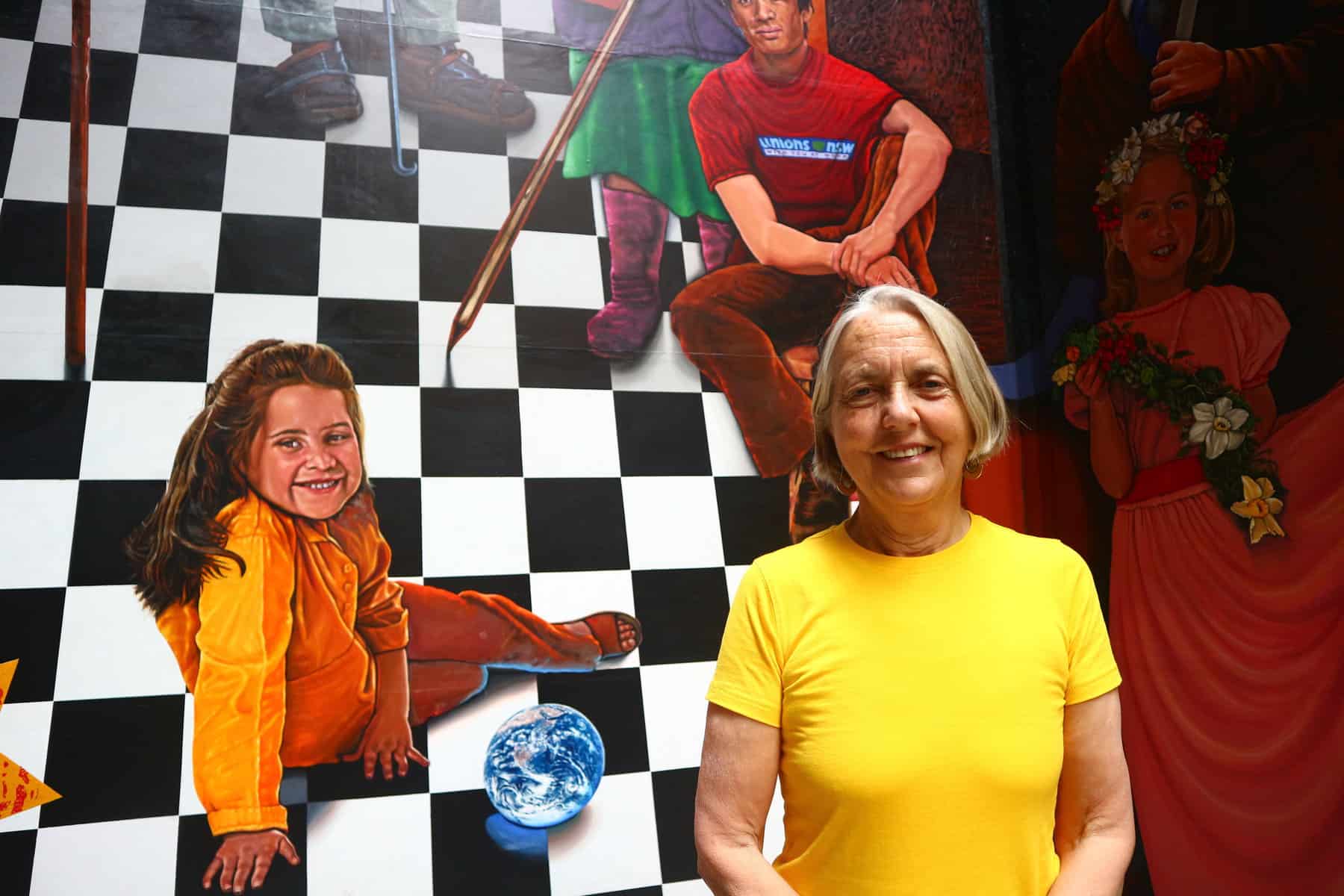Lee Rhiannon on why “international solidarity matters”: APHEDA People
When Lee Rhiannon was a young activist, she remembers seeing the anti-Vietnam War movement grow from a handful of people gathered in Sydney’s Martin Place to a mass movement of hundreds of thousands of people. This was Lee’s first experience of the power of global solidarity.
“International solidarity matters. Solidarity matters to the people who are struggling on the front-lines. It speaks volumes that other people are thinking about them and understand what they’re going through. That’s so important.”

Since then, Lee has committed herself to supporting struggles for freedom, justice, and peace across the globe, from Palestine to Kashmir, from Western Sahara to Kurdistan. When asked what motivates her to advocate for these causes in Australia, even when they’re unpopular or seemingly impossible, Lee tells us:
“Solidarity means you are committed to their struggle, and that you believe it will change.”
As a founding member of AID/WATCH, Lee advocated for an aid and development program that addresses the structural reasons behind poverty and injustice, and which does not harm the environment or take away the decision-making power of local communities.
“When people are in crises, you want to do something to change that. But you have to do it in a way that we get to a point where you don’t need aid, because you do have equality, you do have peace, and you do have justice.”
That is why, she says:
“I was very impressed with the approach of Union Aid Abroad – APHEDA: here is an organisation that had a holistic approach to change. It’s about rights, and it’s about really ensuring that local people are decision-makers in aid.”

And, Lee says, “Working with unions was unheard of in the aid sector, and largely still is. This brings a different perspective to aid.” She cites the campaign to ban asbestos in South-East Asia as “a fantastic example of what Union Aid Abroad – APHEDA brings to the meaning of aid.”
From campaigning to ban asbestos to supporting refugee women in Palestine, Lee says that “The range of work that Union Aid Abroad – APHEDA has engaged in over the years is inspiring, and you can be a part of that in the way you choose. Maybe by just giving a donation, or maybe by being more hands on.”
“Solidarity comes in different forms, and by signing up you are assisting Union Aid Abroad – APHEDA to keep functioning, but you can also have a role. Union Aid Abroad – APHEDA has incredible networks around the world. Often amazing people come to this country, and you’ll have opportunities to hear from them, and to understand and appreciate what international solidarity means.”
Lee says when she talks to young activists, she tells them of when Nelson Mandela visited Australia just five months after he was freed from prison. He was imprisoned for twenty-seven years, and he came to Australia to “pay tribute to the international solidarity that came out of Australia, and particularly the union movement’s role in that. By joining up to APHEDA, you’re a part of that. You do your little bit, and it all adds up.”
Play a Greater Part
By joining Union Aid Abroad – APHEDA, you will be supporting trade unions, social movements, and advocacy organisations around the world secure justice and equality in their communities. Join today, and play a greater part.
